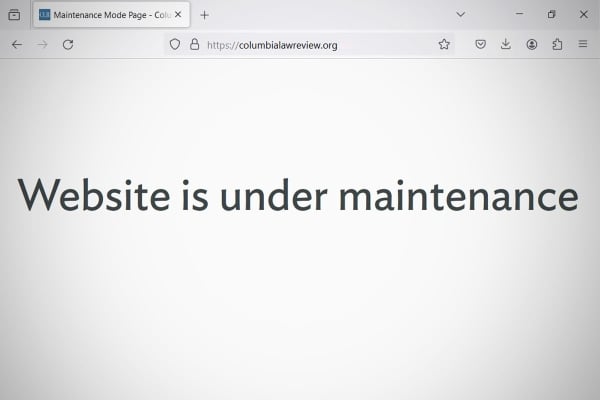The Columbia Law Review, one of the most prestigious legal journals in the United States, made headlines recently when its board decided to take unprecedented steps and pull the plug on its website. This decision has raised eyebrows in the legal community and sparked a debate about the future of legal publishing in the digital age.
The Columbia Law Review has long been known for its rigorous scholarship and influential articles on a wide range of legal topics. Established in 1901, the journal has been a go-to resource for legal scholars, practitioners, and students seeking cutting-edge analysis and commentary on pressing legal issues. Over the years, the journal has built a reputation for excellence and has been a key player in shaping legal discourse in the United States.
However, in a surprising move, the board of the Columbia Law Review decided to shut down its website, citing concerns about the impact of online publishing on the journal’s reputation and credibility. In a statement released to the press, the board explained that they believed that the proliferation of online legal publishing has led to a “dilution of quality” and a “race to the bottom” in terms of scholarship and editorial standards. They argued that by pulling the plug on their website, they could uphold the journal’s commitment to excellence and ensure that their articles are read and cited by serious scholars and practitioners.
This decision has sparked a heated debate among legal scholars and publishing professionals. Some have praised the board for taking a stand against the erosion of editorial standards in the digital age, while others have criticized them for turning their back on the potential of online publishing to reach a wider audience and engage with new ideas and perspectives. Many have pointed out that online publishing has revolutionized the way legal scholarship is disseminated and consumed, opening up new avenues for collaboration, outreach, and impact.
Furthermore, some have questioned the wisdom of shutting down a website in an age where digital presence is essential for any publication seeking to remain relevant and accessible. In today’s world, where the majority of legal research is conducted online and readers expect instant access to information, pulling the plug on a website could be seen as a step backward rather than forward.
Ultimately, the decision by the Columbia Law Review board to shut down its website represents a bold and controversial move that has sparked a wider conversation about the future of legal publishing in the digital age. While their concerns about maintaining editorial quality and credibility are valid, it remains to be seen whether cutting off access to online readers is the right solution. Only time will tell whether this decision will be seen as a prescient move or a missed opportunity.


